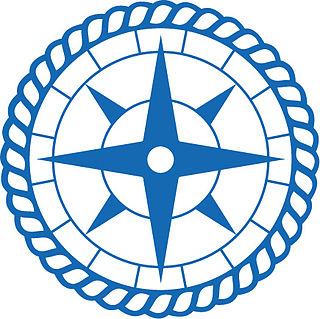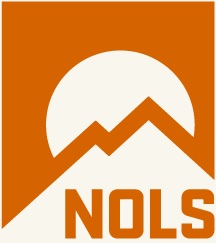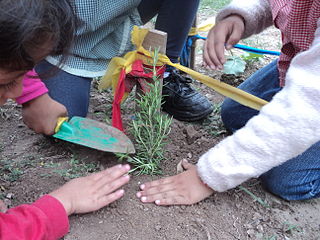See also

Expeditionary education is often associated with adventure education, outdoor education, environmental education or experiential education and refers specifically to learning associated with exploration and journey-based experiences or expeditions within these fields. Usually involving elements of challenge, adventure and leadership, expeditionary education can take place in a variety of settings including wilderness, classrooms and even virtual spaces (the internet). Participants in expeditionary education can be directly involved in the expedition, or may be linked to expeditions undertaken by others.
Webster's online dictionary defines expeditionary as "of, relating to, or being an expedition." [1] Expeditionary education is of, relating to, or being an expedition within an educational framework. Expeditionary education may be mistakenly defined as a subset of or synonymous to outdoor education, adventure education, or experiential education. While many expeditionary education programs of, or being an expedition could be defined under these existing fields (such as Outward Bound, or NOLS), educational programs relating to expeditions may take place in the classroom and not outside, requiring adventure, or experiential in nature are becoming more prevalent as explorers and expedition based researchers strive to connect educational content to their projects. [2]
Expeditionary education can be:
The origins of expeditionary education could be thought to extend far back into early human history through hunting and gathering expeditions where traditional ecological knowledge was learned. Potentially one of the first formal applications of expeditionary education were the field trips conducted through Henry David Thoreau and his brother John's Concord MA grammar school in 1838. Later in the 19th century a summer camping movement was established in response to anxieties about urban and industrial influences on children. [3] During this time, expeditions into "nature" were combined with informal educational pursuits. Scouting, a movement started in 1907 by Robert Baden-Powell initiated widespread development of practical outdoor skills which often incorporated expeditionary components like camping, backpacking, and canoeing and has grown to 38 million members in 216 countries 100 years after its inception. [4] By the late 20th century expeditions were being used as educational vehicles by many private and public sector groups and has grown into large groups such as Outward Bound, serving over 200,000 students in 2006 [5] and National Outdoor Leadership School who have trained over 120,000 people. Various contemporary groups and programs are discussed in #Programs
Expedition as a mode of educational pursuit has its theoretical and applied roots in many soils. Many people, theories, and practices can be identified as influential.
Source: [7]
Research has been conducted on various aspects of expeditionary education. Correlations between a controlled exposure to challenge and psychological resiliency have been found by researchers James Neill and Katica Dias in their study of young adult Outward Bound participants. [9] In a review of 150 research studies conducted between 1993 and 2003, general findings of positive impacts from outdoor learning [10] In another meta analysis, focus areas such as self-concept, leadership, and communications skills were shown to have positive gains during the educational experience, and in contrast to many educational interventions, significant ongoing gains in follow up reviews. [11] While these and other studies point to positive results, the difficulty of drawing causality between psychologically gained elements and these programs in empirically based studies exist in the number of variables to control for and the strength of experimental designs.

The following outline is provided as an overview of and topical guide to education:

Outward Bound (OB) is an international network of outdoor education organisations that was founded in the United Kingdom by Lawrence Holt and Kurt Hahn in 1941. Today there are organisations, called schools, in over 35 countries which are attended by more than 150,000 people each year. Outward Bound International is a non-profit membership and licensing organisation for the international network of Outward Bound schools. The Outward Bound Trust is an educational charity established in 1946 to operate the schools in the United Kingdom. Separate organisations operate the schools in each of the other countries in which Outward Bound operates.

NOLS is a non-profit outdoor education school based in the United States dedicated to teaching environmental ethics, technical outdoor skills, wilderness medicine, risk management and judgment, and leadership on extended wilderness expeditions and in traditional classrooms. It was previously known as the National Outdoor Leadership School, but in 2015, this label was retired in favor of the independent "NOLS". The "NOLS" mission is to be the leading source and teacher of wilderness skills and leadership that serve people and the environment. NOLS runs courses on six continents, with courses in a variety of wilderness environments and for almost any age group.
Alternative education encompasses educational philosophy differing from mainstream pedagogy and evidence-based education. Such alternative learning environments may be found within state, charter, and independent schools as well as home-based learning environments. Many educational alternatives emphasize small class sizes, close relationships between students and teachers and a sense of community.

Experiential education is a philosophy of education that describes the process that occurs between a teacher and student that infuses direct experience with the learning environment and content. This concept is distinct from experiential learning, however experiential learning is a subfield and operates under the methodologies associated with experiential education. The Association for Experiential Education regards experiential education as "a philosophy that informs many methodologies in which educators purposefully engage with learners in direct experience and focused reflection in order to increase knowledge, develop skills, clarify values, and develop people's capacity to contribute to their communities". The Journal of Experiential Education publishes peer-reviewed empirical and theoretical academic research within the field.

Kurt Matthias Robert Martin Hahn was a German educator. He was decisive in founding Stiftung Louisenlund, Schule Schloss Salem, Gordonstoun, Outward Bound, the Duke of Edinburgh's Award, and the first of the United World Colleges, Atlantic College.

Experiential learning (ExL) is the process of learning through experience, and is more narrowly defined as "learning through reflection on doing". Hands-on learning can be a form of experiential learning, but does not necessarily involve students reflecting on their product. Experiential learning is distinct from rote or didactic learning, in which the learner plays a comparatively passive role. It is related to, but not synonymous with, other forms of active learning such as action learning, adventure learning, free-choice learning, cooperative learning, service-learning, and situated learning.

Outdoor education is organized learning that takes place in the outdoors, typically during school camping trips. Outdoor education programs sometimes involve residential or journey wilderness-based experiences in which students participate in a variety of adventurous challenges and outdoor activities such as hiking, climbing, canoeing, ropes courses and group games. Outdoor education draws upon the philosophy, theory, and practices of experiential education and environmental education.

Environmental education (EE) refers to organized efforts to teach how natural environments function, and particularly, how human beings can manage behavior and ecosystems to live sustainably. It is a multi-disciplinary field integrating disciplines such as biology, chemistry, physics, ecology, earth science, atmospheric science, mathematics, and geography.

Adventure therapy is a form of psychotherapy created as early as the 1960s. It is influenced by a variety of learning and psychological theories. Experiential education is the underlying philosophy.

Outward Bound Singapore is part of the network of Outward Bound centres worldwide. Established in 1967 as Outward Bound School of Singapore (OBSS), OBS has a campus located on the island of Pulau Ubin.
Project Adventure is an international nonprofit education organization based in Beverly, Massachusetts. The mission of Project Adventure is to provide leadership in the expansion of adventure-based experiential programming.
Adventure education is the promotion of learning through adventure centered experiences.
Outward Bound USA (OBUSA) is a non-profit organization providing experiential education in the United States through a network of regional schools, especially in wilderness settings. Outward Bound counts among its desired outcomes the development of self-awareness, self-confidence, leadership skills, environmental and social responsibility.

Garden-based learning (GBL) encompasses programs, activities and projects in which the garden is the foundation for integrated learning, in and across disciplines, through active, engaging, real-world experiences that have personal meaning for children, youth, adults and communities in an informal outside learning setting. Garden-based learning is an instructional strategy that utilizes the garden as a teaching tool.
Outward Bound Costa Rica (OBCR) (formerly known as "Costa Rica Rainforest Outward Bound School" or CRROBS) is a non-profit experiential learning and outdoor education organization based in San José, Costa Rica. It is a charter of Outward Bound International (OBI).
The Kurt Hahn Expeditionary Learning School is a New York City public school working in partnership with New York City Outward Bound and Expeditionary Learning. Ms. Jessica Jean-Marie is the principal.
Derech Hateva is an educational organization in Israel that integrates nature hikes and Jewish learning.
Expeditionary Learning Schools(ELS) are models of comprehensive school reform based on the educational ideas of German educator Kurt Hahn, the founder of Outward Bound. There are more than 150 Expeditionary Learning Schools in 30 US states and the District of Columbia. They feature project-based learning expeditions, where students engage in interdisciplinary, study of compelling topics, in groups and in their community, with assessment coming through cumulative products, public presentations, and portfolios. According to the ELS website students undertake tasks requiring perseverance, fitness, craftsmanship, imagination, self-discipline, and significant achievement.

Outward Bound Australia (OBA) is the Australian chapter of the not-for-profit organisation Outward Bound International. Since its founding in 1956, Outward Bound Australia has made outdoor education courses available to the community with the aim of developing teamwork skills and raising environmental awareness Australia wide.